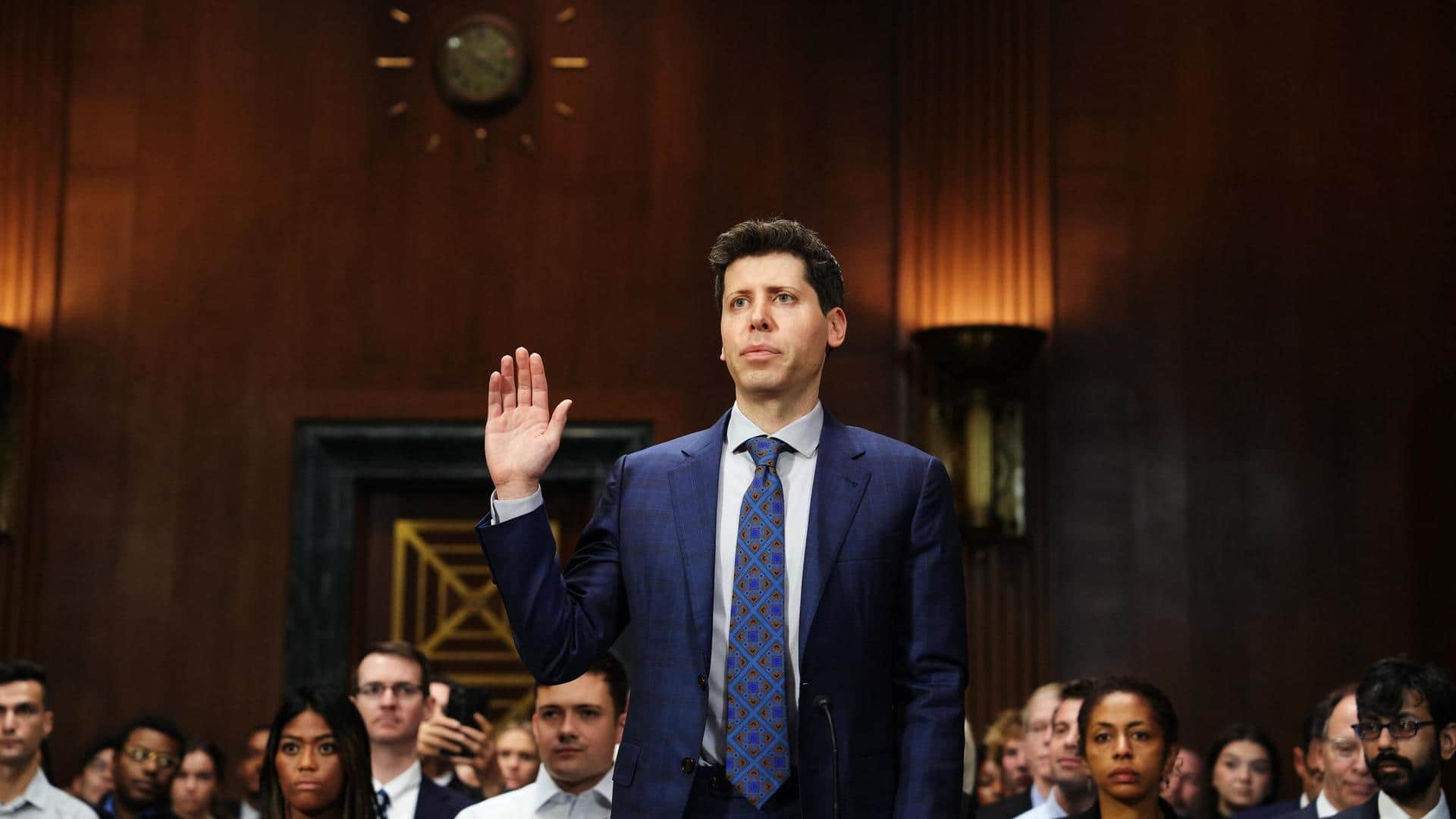
OpenAI CEO Sam Altman urges for AI regulation before Senate
What's the story
The viral success of ChatGPT has made OpenAI CEO Sam Altman the face of the ongoing artificial intelligence (AI) revolution. On Tuesday, Altman appeared before a US Senate Judiciary Subcommittee to speak about the threats posed by AI. During his appearance, he emphasized the need to regulate the technology. Let's take a look at the key takeaways of Altman's meeting with the Senate panel.
Context
Why does this story matter?
ChatGPT, Bing AI, Bard, Ernie...the list of chatbots keeps growing longer as tech companies worldwide battle each other to come out on top of the AI race. As baffled as we are by the abilities of these chatbots, they also scare us. Altman's appearance before the Senate underscores the unease felt by technologists and lawmakers about the new transformative technology.
Candid
Altman spoke candidly about AI's possibilities, pitfalls
Altman's stature as a spokesperson for AI has grown over the past few months. He, however, has never shied away from addressing the ethical conundrums of the new technology. Speaking to the Senate panel, he was candid about AI's possibilities and pitfalls. Altman said AI could be as big as the "printing press" but acknowledged the potential dangers of the technology.
Manipulation
OpenAI CEO concerned about AI's effect on elections
One of the biggest concerns expressed by Altman was about how AI can be used to manipulate voters. "I am nervous about it," Altman said about AI and elections. He said the technology could be used for targeted disinformation. The OpenAI CEO said he was concerned about voter manipulation, especially because the US is heading for a presidential election next year.
Jobs
AI will lead to job losses: Altman
As great as generative AI is, many are worried about how it would affect jobs worldwide. "There will be an impact on jobs," Altman told Senator Richard Blumenthal. He said a partnership between industry and government is required to mitigate the impact of job losses. Altman added AI would create new jobs and said he was "optimistic" about the jobs of the future.
Working together
Altman wants governments, companies to work together
Altman did not spare any words in describing the threat AI poses. "I think if this technology goes wrong, it can go quite wrong. And we want to be vocal about that," he said. He added governments and companies should work together to prevent that from happening. Altman talked about the importance of regulatory intervention to mitigate the risks of powerful models.
Regulation
He differentiated between social media, AI
Any conversation about AI's risks is not complete without talking about the need to regulate the technology. Governments do not want to make the same mistakes they made in social media's case. During the hearing, Altman kept making a distinction between AI and social media. He, however, stressed the need for rules to govern the technology.
Regulatory authority
Altman proposed licensing regime for AI companies
Altman was joined by IBM's privacy chief, Christina Montogomery, and New York University professor Dr. Gary Marcus. Echoing Dr. Marcus, the OpenAI CEO proposed the creation of an agency to issue licenses for the development of powerful AI models. He also said there should be some safety regulations and testing requirements that companies must adhere to.